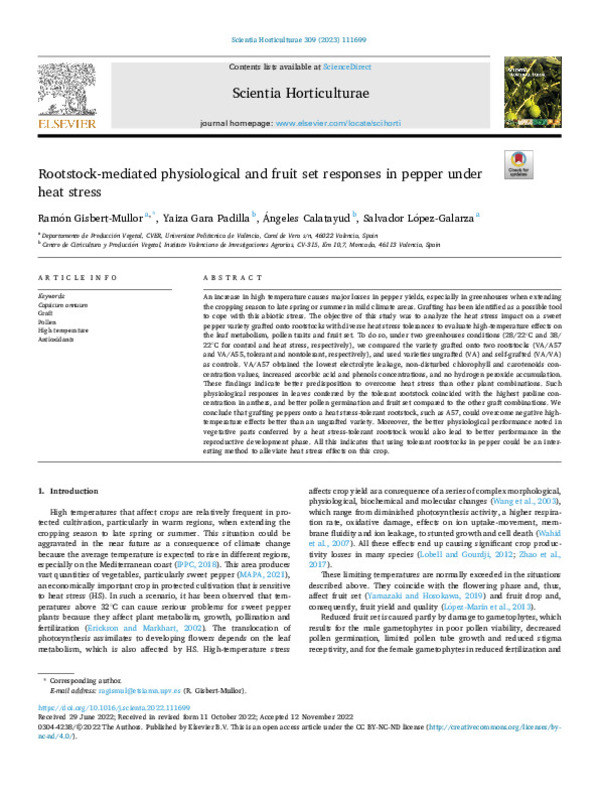JavaScript is disabled for your browser. Some features of this site may not work without it.
Buscar en RiuNet
Listar
Mi cuenta
Estadísticas
Ayuda RiuNet
Admin. UPV
Rootstock-mediated physiological and fruit set responses in pepper under heat stress
Mostrar el registro completo del ítem
Gisbert-Mullor, R.; Padilla, YG.; Calatayud, Á.; López Galarza, SV. (2023). Rootstock-mediated physiological and fruit set responses in pepper under heat stress. Scientia Horticulturae. 309. https://doi.org/10.1016/j.scienta.2022.111699
Por favor, use este identificador para citar o enlazar este ítem: http://hdl.handle.net/10251/203276
Ficheros en el ítem
Metadatos del ítem
| Título: | Rootstock-mediated physiological and fruit set responses in pepper under heat stress | |
| Autor: | Padilla, Yaiza Gara Calatayud, Ángeles | |
| Entidad UPV: |
|
|
| Fecha difusión: |
|
|
| Resumen: |
[EN] An increase in high temperature causes major losses in pepper yields, especially in greenhouses when extending the cropping season to late spring or summer in mild climate areas. Grafting has been identified as a ...[+]
|
|
| Palabras clave: |
|
|
| Derechos de uso: | Reconocimiento - No comercial - Sin obra derivada (by-nc-nd) | |
| Fuente: |
|
|
| DOI: |
|
|
| Editorial: |
|
|
| Versión del editor: | https://doi.org/10.1016/j.scienta.2022.111699 | |
| Tipo: |
|









